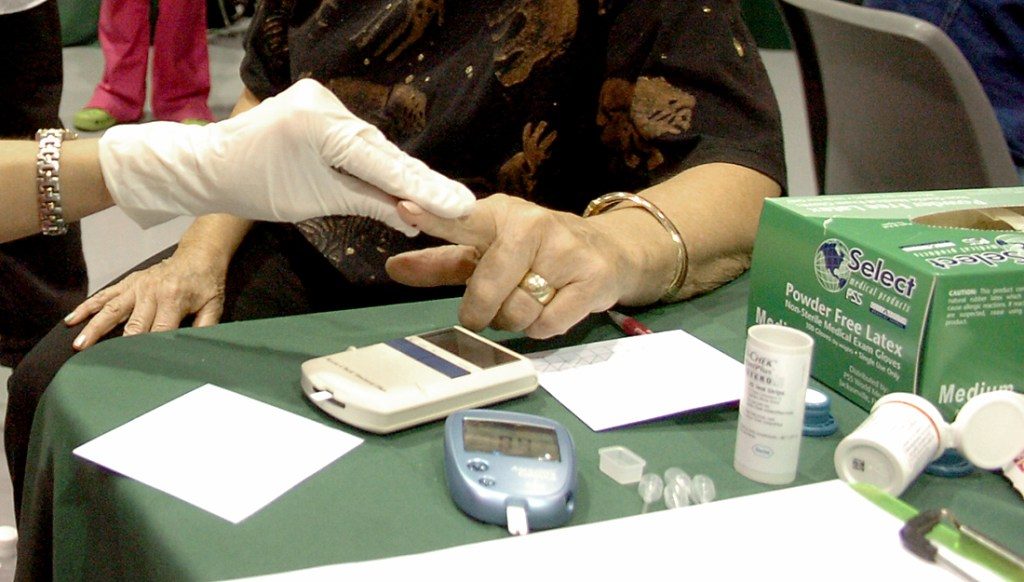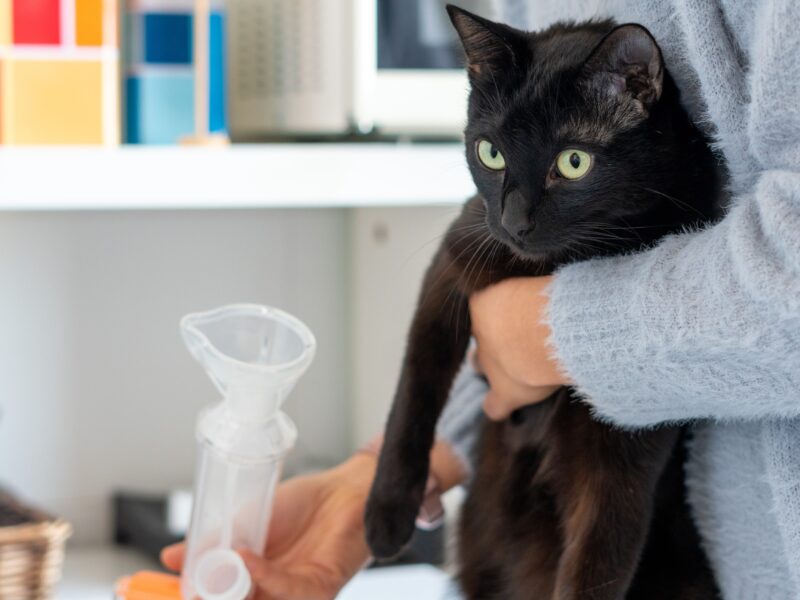School Of Public Health Students In McAllen Help Area Residents Detect Diabetes
Perhaps the last thing you would expect to find in a south Texas flea market—among the produce, old clothes and high-end cowboy boots—is a booth where you can find out if you have diabetes. But that’s exactly what professors and master’s degree students at the Texas A&M School of Public Health in McAllen have set up in the town of Alamo, chosen because the clients are least likely to have medical coverage and delay detection and treatment of diabetes.
To date, the program, called Prevention Organized against Diabetes through Education and Resources or Prevención Organizada contra la Diabetes y Diálisis con Educación y Recursos, has screened 2,480 people for diabetes and reached 8,000 more—mostly family members—with some basic information about a healthy diet and the importance of physical activity.
“Waiting until the disease has developed and interferes with daily life means a potential future of kidney dialysis, amputation or blindness,” said Ann V. Millard, PhD, associate professor at the School of Public Health. “Early prevention requires changes in daily routines of eating and physical activity; later treatment requires these elements plus medication.”
The lower Rio Grande Valley has a type 2 diabetes prevalence of 30.7 percent among adults, compared with 9.3 percent nationwide. “The clinics in our region are flooded with diabetes,” Millard said. “The high valley prevalence means that an upstream focus is necessary to prevent the development of symptoms of diabetes, and we know that with this program, we’re catching people and getting them into care earlier.”
Public health students and other volunteers will give each person who comes into the booth some basic health information—if they’re 25 older—and ask if they’d like a free HbA1c test for diabetes. “People often ask how long the test will take,” Millard said. “The beauty of it is that the test only takes six minutes and doesn’t require fasting or any other special preparation.” When someone tests positive for diabetes, the public health volunteers refer them for a medical appointment the following week at a community clinic. Those with prediabetes are encouraged to improve their eating patterns and get more physically active. Then, in the following weeks, the team follows up with each person who tested positive for diabetes (about 25.3 percent of those tested) or pre-diabetes (28.5 of those tested).
https://today.tamu.edu/2016/06/22/new-technology-could-improve-diabetes-management/
The results have been encouraging. Among people who were shown to have pre-diabetes, more than half had increased the number of vegetables in their diets, decreased the number of sodas they drank or both after three months. Also, those referred for medical care had a statistically significant decline in blood sugar levels.
“We’ve been pleasantly surprised,” Millard said. “Something about the person-to-person contact with the students really helps and is hopefully setting the participants on a course for many more years of healthy life.”
The project has been supported by Methodist Healthcare Ministries of South Texas, Inc., Healthy South Texas (Texas A&M University), International Valley Health Institute, Nuestra Clinica del Valle, Superior HealthPlan and Siemens Corporation. Other public health faculty members involved in the research are Nelda Mier, PhD, associate professor and assistant department head for McAllen academic operation; Marcia Ory, PhD, MPH, associate dean of research and Regents & Distinguished Professor, and Marlynn May, PhD, adjunct associate professor.
###
This story by Christina Sumners was originally posted on Vital Record.





